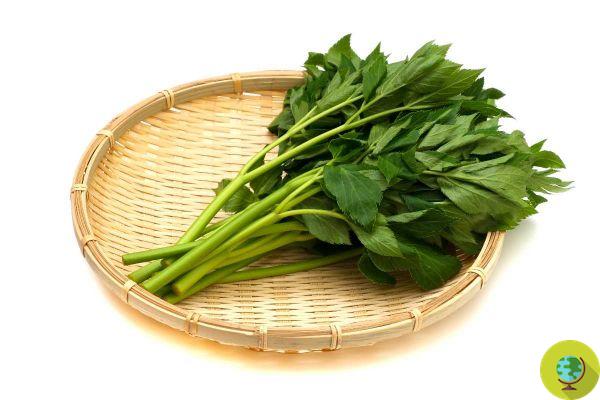
According to research, there is a plant that can slow down the cellular aging process thanks to its antioxidant properties
Don't store avocado like this: it's dangerousAccording to research, there is a plant that can slow down the cellular aging process thanks to its antioxidant properties
Research has been published that examines some anti-aging compounds in a plant called ashitaba. In this study Published in Nature Communications Trusted Source, the researchers say they think the Japanese could potentially hold the key to stopping the effects of age on the body.
But experts warn that the research is still in its early stages, and it doesn't prove that the anti-aging properties will actually work on humans.
Index
What it turned out
According to this new study, a compound found in angelica keiskei koidzumi, known as ashitaba, which has been revered for centuries as a traditional treatment for conditions from heartburn to hay fever, may have a anti-aging effect.
Ashitaba contains a variety of nutrients, including a flavonoid called 4,4′-dimethoxicalcone (DMC). DMC has been identified as a “natural compound with anti-aging properties”, and may slow down cellular degeneration and cellular aging, the degeneration process that can lead to chronic health conditions such as heart disease and cancer.
In human cell tests, this compound looked like slow down senescence, the process that causes cells to stop dividing and start growing permanently. Senescence is a turning point in a person's aging process and once it begins, the body enters the period of permanent aging.
Researchers say that DMC slows aging by inducing autophagy, a process during which the body recycles damaged cells and removes them in favor of new, healthier cells. If this compound could slow cellular aging and trigger autophagy, the researchers concluded, the plant's anti-aging properties could help people live longer and have fewer chronic health conditions.
Can ashitaba slow aging in humans?
Experts say the research is in the early stages; therefore, there is little evidence that ashitaba actually works on humans. Some studies suggest it may have some useful benefits beyond aging. For example, one study found that animals consuming ashitaba produced less stomach acid, which may mean the plant is beneficial for treating heartburn.
Another study found that an extract in the ashitaba can help lower LDL (bad) cholesterol, as well as total cholesterol and triglyceride numbers.
What is the ideal dose to consume
There isn't one. In fact, studies currently lack sufficient evidence to list potential reactions, interactions with herbs / supplements or medications, as well as the correct dosage. Many herbal products can interact with some medications, so care should be taken and always consult your doctor.
You can find the ashitaba like dietary supplement or as a herbal compound; furthermore, ashitaba leaves can be eaten fresh or squeezed. Most ashitaba studies are looking at other nutrients in the plant, and have found that the numerous vitamins and minerals, as well as antioxidants, may be the key to the plant's powerful regenerative effects.
Follow us on Telegram | Instagram | Facebook | TikTok | Youtube
Photos: Nature
Could it be interesting for you:
- Strawberry tree: all the extraordinary properties and uses of the forgotten autumn fruit
- All about broccoli sprouts: properties, how to grow them and why you should include them in your diet
- Sumac: the ancient Sicilian antioxidant spice to be rediscovered before it disappears


























